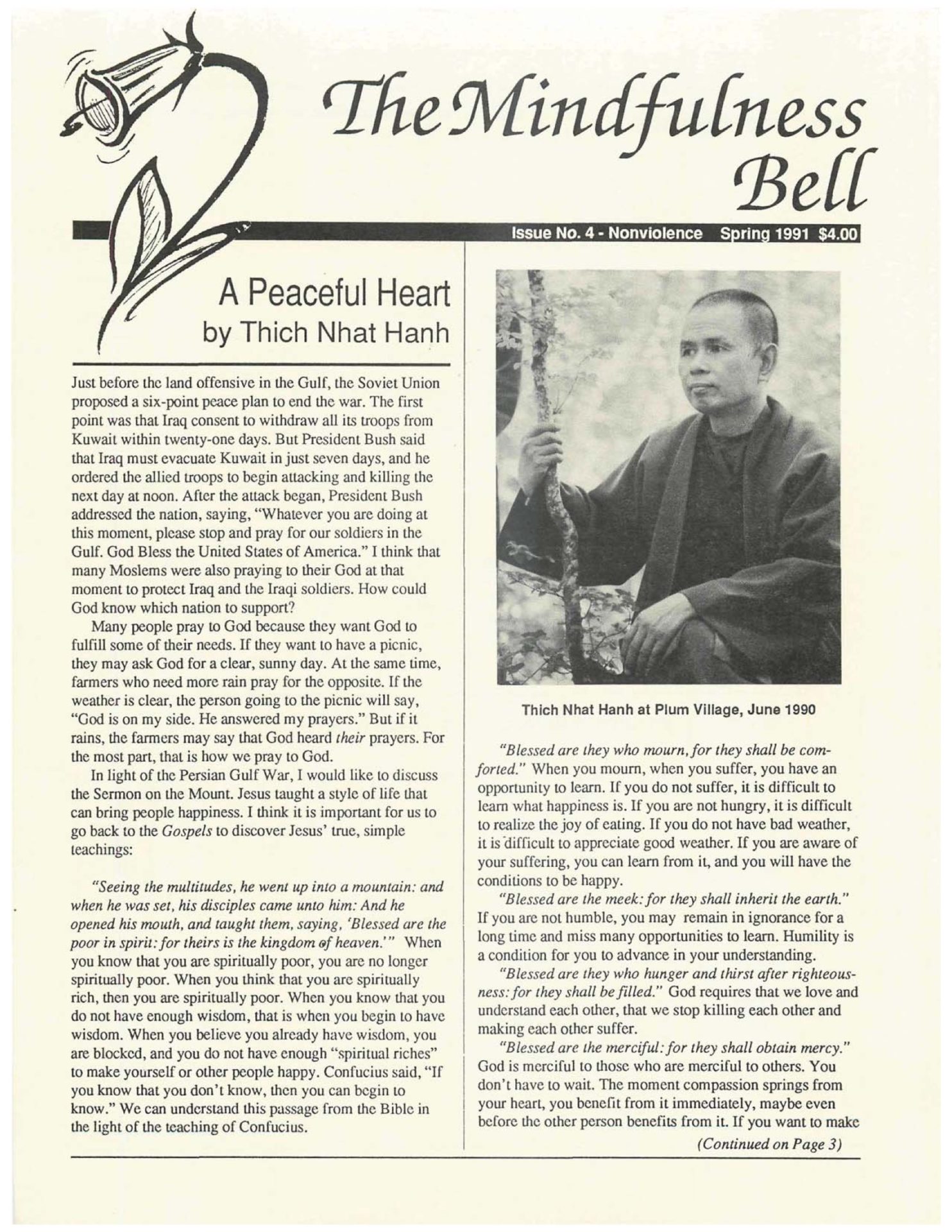By Fred Bender
On two beautiful afternoons during the April Santa Barbara Retreat for Young People and Families, some fifteen adults held an informal discussion on the topic, “Spiritual Practices Within Families.” Quite magically, this group jelled immediately. People spoke from their hearts and many deeply moving experiences were shared. We then met a second time to share ideas in the search for that elusive quality I’ll call “wise parenting.”
It was widely agreed that the key to inspiring interest in spiritual practice is to elicit children’s interest rather than to impose parental beliefs.
By Fred Bender
On two beautiful afternoons during the April Santa Barbara Retreat for Young People and Families, some fifteen adults held an informal discussion on the topic, "Spiritual Practices Within Families." Quite magically, this group jelled immediately. People spoke from their hearts and many deeply moving experiences were shared. We then met a second time to share ideas in the search for that elusive quality I'll call "wise parenting."
It was widely agreed that the key to inspiring interest in spiritual practice is to elicit children's interest rather than to impose parental beliefs. Many people agreed that experience shows that children more readily follow what you do, not what you say (a reminder of the importance of Right Speech, Right Action, and how the two are related). Parents need to get their own spiritual act together if they expect their children also to want to practice. We emphasized the importance of not becoming anxious if our children don't want to practice. Even if they don't practice themselves, they will learn from us indirectly. Trust the children and let go. If they do come down the path, they will do so at their own speed and in their own time. The big question, of course, was how to help children want to enter the Path.
Under the trees and blue afternoon sky, we shared the following ideas which have helped our children develop an interest in spiritual practice:
- keeping an altar and having a few small religious rituals, such as the bell of mindfulness, incense, and candles
- sharing with our children our understanding of what meditation is for and why it is important. Someone suggested the book, Spinning Inward, by Maureen Murdock, which deals with guided imaging as a gentle way to get children interested in meditation.
- at dinnertime, talking about the food on our plates; honoring the food and all those who helped bring it to us
- holding family ecological rituals, such as recycling and cutting six-pack rings and using them to bring out the meaning of interbeing.
- reading the Fourteen Precepts of the Order of lnterbeing and discussing them with our children.
- showing how an understanding of the dharma and practicing can help children deal with their real needs. For example, one parent described how she and her son started the "Young Adults Peace Project," which helps young men learn about their rights under Selective Service. In time, the boys' understanding deepened and they began meditating and reciting the precepts together.
- visiting places where spiritual traditions are still intact.
We also discussed some of the following experiences that have helped us become wiser parents:
- establishing a family forgiveness ritual
- starting a "family council" to give everyone the chance to speak from the heart. Tips for making the council a success include having the leadership of the meetings rotate, creating the agenda together in advance, if only by posting a notice for people to write in agenda items as they arise. Another helpful technique is the use of a ritual object to empower speakers and require silence of everyone else.
- allowing kids to tell you to stop and letting them go to another room
- remembering that children carry inside them real suffering
- developing the art of listening. After all the blaming comes out, ask "What's really going on?" If your child won't open up to you, take him or her out to dinner or to a provocative movie. Acknowledging our own feelings to our children can encourage them to feel safe to open up. Saying "I'm sorry" can be a mind-blowing modeling of humility and compassion.
- expressing our feelings in positive statements - for example, "I love you and I will never leave you." "I love you the way you are, not for what you do." "I'm glad you are a little boy/girl. You are exactly the child I need" Adele Faber and Elaine Mazlish's book, How to Talk So Children Will Listen, was cited as a helpful resource.
I hope the above conveys some of the flavor of this very exciting exchange of views among the participants, and that it may be of use as we continue on the parenting path.
Fred Bender lives in Colorado Springs, Colorado.

